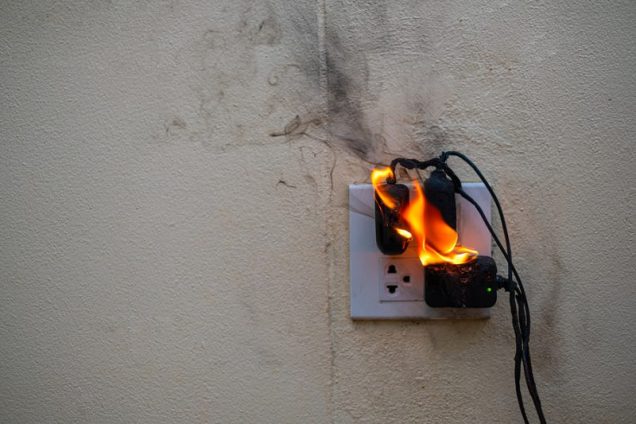Overload occurs when there is too much power drawn by electronics connected to a circuit than that circuit can handle.
The signs to look out for when there is an overload are
- Your circuit breaker trips off
- Burning smell
- The circuit gets hot and starts melting
- Appliances connected will experience a short power supply.
Circuit overload prevention:
- Understand how the circuit breaker works, the circuit breaker is located in the basement, garage, etc. the circuit breaker is labeled with where each wire goes in the house and for appliances use.
You don’t need to be an expert in electricity to be able to manage your circuit breaker.
- Wire inspection is a very good circuit overload prevention step. Always inspect your electrical wires in the house, when you find a crack or opening in the insulator of any wire, it means your circuit is overheating which in turn burns the wires.
- Having a dedicated circuit for some range of high voltage appliances requires 1000 watts of electricity such as air-condition, hairdryer, oven cooker
- Avoid cluttering your appliances on one single circuit. Spacing your appliances is advisable but if you most have them in a particular place then unplug them when not in use and only plug the one you want to use at that particular time.
For more information or assistance during normal business hours, call or e-mail TPS at the phone number above. You can also complete and submit our Service Project Inquiry form.

